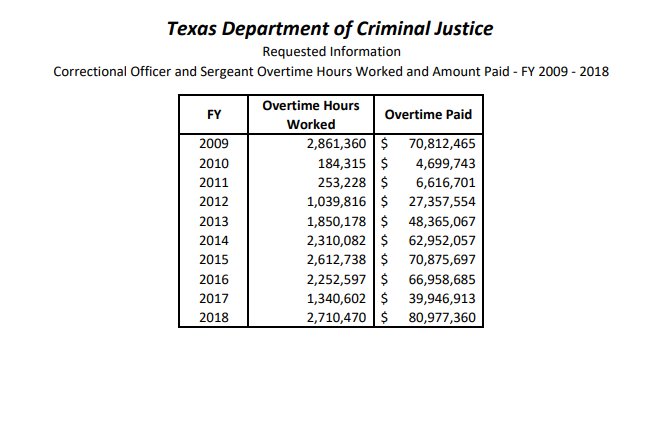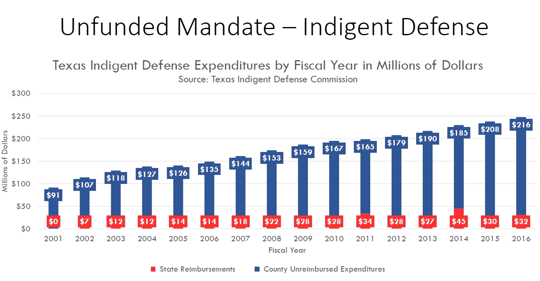Our friends at the prosecutor association want to pretend Texas has solved its problem with eyewitnesses falsely identifying innocent suspects after the state passed non-binding guidelines for police lineups in 2011. Shannon Edmonds last night was
crowing on Twitter that the last exoneration based a false ID in Texas was in 2010, and the state had solved the problem in 2011.
This is such a disingenuous claim I thought I'd dissect it without the 140 character limitations.
Texas hasn't seen more eyewitness-based exonerations
because we've run out of old DNA cases. Those offered a unique window onto false convictions from which we have learned many lessons. But now that there aren't more of them, it's disingenuous bordering on mendacious to pretend that there aren't more false convictions happening.
All of the false ID cases where someone was exonerated by DNA happened because biological evidence still existed from an old, pre-DNA-era conviction that was available for testing. In new cases, DNA testing will (eventually, hopefully) happen as a matter of course where that's possible. Those DNA exonerations were a one-time thing: A window onto the system's failures provided thanks to the advance of technology.
But here's the rub: DNA evidence
only exists in about 10 percent of violent crimes. And in those older cases, in the overwhelming majority of instances, biological evidence had been destroyed or damaged and could not be tested. Evidence was only available in a tiny fraction of cases, and even then, prosecutors
fought tooth and nail to keep from having it tested. So for every person exonerated by DNA, there are dozens more whose false convictions could never be discovered because the evidence doesn't exist.
This is Innocence Project Math 101.
The existing crop of DNA exonerees is not remotely all the innocent people who've been falsely convicted, they're just the lucky few who could prove it.
DNA exonerations should be viewed much like a poll. A pollster may interview 500 people to gauge the opinions of 5 million. Because we know there are other criminal cases using the same, flawed evidence as in the exonerees' cases, we can infer that the problem exists more broadly in the same way a pollster can say that X% of people approve or disapprove of the president based on a small sample.
What we learned from that DNA "poll" is that faulty eyewitness IDs are the most common causes of false convictions. And studies show that those errors are reduced, but
not remotely eliminated, if cops use the best practices promoted in the 2011 Texas legislation. Error rates are still significant.
Because the same practices that caused false convictions in the DNA exonerations are still being used (the guidelines are not mandatory) - and because best practices only lower the error rate, they don't eliminate it - it's a logical fallacy of the highest order to pretend that, because DNA exonerations have stopped, so have false convictions. They've just become invisible again without the fortuitous window DNA provided.
TDCAA was reacting to a
New York Times story about false identifications when suspects are allowed to page through mug shot books, as is common in many jurisdictions across the country. Dallas PD was identified as a department that forbids the practice because it leads to false accusations.
The story cited a
study out of Houston which analyzed whether photo lineups should be simultaneous or sequential and whether confident witnesses are more likely to be accurate. Study authors parsed data to say that simultaneous is probably better and confident witnesses are more likely to be accurate - a finding they admit contradicts "[l]aboratory-based mock crime studies."
Shannon disputed the Times' take on that research,
quoting the study authors' conclusions that “eyewitness confidence is a highly reliable indicator of accuracy.”
However, there's a LOT of error still being made by witnesses: The Times mentioned one cohort in the Houston study in which 47 percent picked the wrong suspect, but overall, 29 percent of witnesses chose a filler from the lineup, while 32 percent chose a suspect. (The Times also pointed to a
meta-analysis of a large number of studies that found witnesses pick the wrong person 37 percent of the time.)
One shortcoming of this analysis: The study operated under a baseline assumption that if the suspect is chosen, it's an accurate ID. That's a dubious, self-fulfilling prophecy.
Some of those choices were likely errors, too. When a suspect picks a filler, the detective knows it's wrong. The innocence problem arises when the wrong suspect is in the lineup in the first place and a witness picks them.
Confident witnesses were more likely to pick the person the officer considered a suspect, but there were also less confident witnesses who did so, and some highly confident people picked fillers.
And some of the error was generated by police.
The Houston study evaluated both "blind" and "blinded" lineups. "Blind" means the officer prepares the array and shows it to the witness in a fashion so that they can't view what the witness is looking at. "Blinded" means one officer prepares the array and another detective who does not know the identity of the suspect administers it. Both methods are allowed under Texas law.
It turned out, an independent panel not involved with the crime could pick the suspect out of "blind" lineups 28 percent of the time! (It would only be 1/6 if it were random.) So the arrays themselves were biased. Researchers hypothesized that cops took more care to prepare photos where the suspect doesn't stand out if they know another officer will see their work.
Texas courts won't exclude even the most biased lineups. For example, in 2017,
Grits discussed a case in which the witness described a suspect as wearing a red hoodie, and police made him put one on before having his photo taken; he was the only one dressed that way in the photo array. But the 14th Court of Appeals said the testimony was okay because the Legislature made eyewitness procedures guidelines instead of requiring them, and courts had always let it in before.
It's not that reformers didn't want best practices to be mandatory back in 2011. But the DA's association and law enforcement interests fought vigorously against it, and the Lege bowed to their wishes. Hence, biased lineups continue to taint the system. That's what's disingenuous about TDCAA's faux concern over valid lineups - they're the ones whose regressive advocacy ensured bad lineups would continue to be used in court, even after the 2011 law.
RELATED: From the New York Times: "
Jazmine Barnes case shows how trauma can affect memory."



.jpg)


